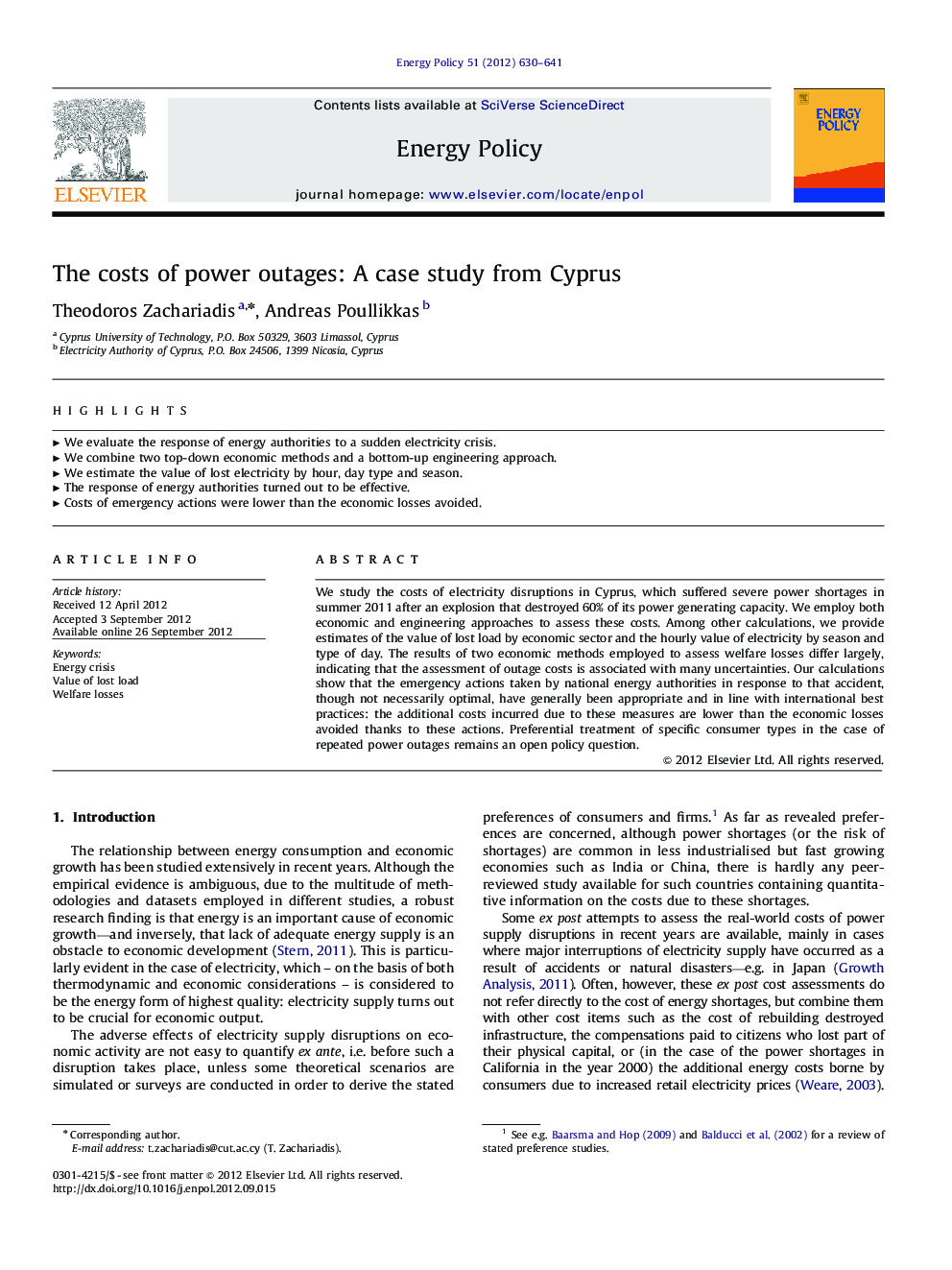| Article ID | Journal | Published Year | Pages | File Type |
|---|---|---|---|---|
| 995638 | Energy Policy | 2012 | 12 Pages |
We study the costs of electricity disruptions in Cyprus, which suffered severe power shortages in summer 2011 after an explosion that destroyed 60% of its power generating capacity. We employ both economic and engineering approaches to assess these costs. Among other calculations, we provide estimates of the value of lost load by economic sector and the hourly value of electricity by season and type of day. The results of two economic methods employed to assess welfare losses differ largely, indicating that the assessment of outage costs is associated with many uncertainties. Our calculations show that the emergency actions taken by national energy authorities in response to that accident, though not necessarily optimal, have generally been appropriate and in line with international best practices: the additional costs incurred due to these measures are lower than the economic losses avoided thanks to these actions. Preferential treatment of specific consumer types in the case of repeated power outages remains an open policy question.
► We evaluate the response of energy authorities to a sudden electricity crisis. ► We combine two top-down economic methods and a bottom-up engineering approach. ► We estimate the value of lost electricity by hour, day type and season. ► The response of energy authorities turned out to be effective. ► Costs of emergency actions were lower than the economic losses avoided.
